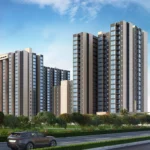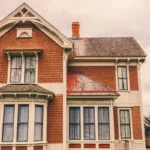Unauthorized suite additions—such as basement apartments, secondary units, or converted garages that have not received proper municipal approval—are becoming more common as property owners seek to maximize rental income or accommodate multi-generational families. While these modifications may appear financially attractive, they carry significant legal risks that can affect property value, financing, and long-term ownership stability.
reaFor individual buyers navigating affordability challenges, programs like First-Time Home Buyer Incentives provide structured pathways into the housing market. However, when purchasing properties with unauthorized suites, buyers may face unexpected liabilities and compliance costs that undermine the benefits of such incentives.
Zoning and Building Code Violations
Unauthorized suites typically contravene zoning bylaws or building codes. Zoning laws dictate permitted uses of property, while building codes establish safety standards for construction, occupancy, and utilities. A suite without permits may lack fire separations, adequate egress windows, or proper electrical systems, all of which expose owners to legal penalties and safety risks.
Municipalities have the authority to issue stop-use orders, fines, or even require removal of the unauthorized unit. For investors, this can result in substantial losses, especially if rental income is abruptly halted.
Financing and Insurance Complications
Mortgage lenders and insurers often require properties to comply with local codes. If a suite is unauthorized, lenders may refuse financing, deny refinancing, or adjust terms unfavorably. Similarly, insurance policies may exclude coverage for claims arising from unauthorized spaces, leaving owners personally liable for accidents or damages.
In transactions, disclosure becomes critical. Sellers who fail to disclose unauthorized units risk lawsuits for misrepresentation or breach of contract, especially if buyers suffer financial losses after closing.
Tax and Liability Risks
Owners of unauthorized suites may also face tax issues. Rental income from illegal units is taxable, but declaring it may draw scrutiny from regulators, while failing to declare it risks penalties. Moreover, liability risks increase substantially if tenants are injured due to non-compliant conditions. Courts may impose damages that far exceed any rental income earned.
For condominium units, the addition of unauthorized suites can create further legal complexity, as alterations often breach condominium bylaws. Boards can enforce removal and pursue recovery of associated costs.
Enforcement and Remedies
When municipalities discover unauthorized suites, remedies typically include bringing the unit up to code through retroactive permits or decommissioning the space. Both options are costly. Retroactive compliance requires inspections, construction upgrades, and payment of penalties. Decommissioning eliminates rental revenue and can reduce property value.
Tenants in unauthorized suites also have legal protections. In many jurisdictions, they cannot simply be evicted without notice, even if the suite itself is non-compliant. This creates tension between municipal enforcement and tenant rights, complicating the resolution process.
Illegal additions of suites may pose severe legal and safety issues. Instead of risking non-compliance, work with a licensed design build firm that manages every phase correctly. Kanstrukt Group’s design-build custom builders guide homeowners through permits, design, and construction, ensuring your additions meet all codes. Their home addition contractors bring precision and quality to each project, reducing long-term costs from unapproved work. For homeowners near Westfield, NJ, the custom home design Westfield team offers elegant and practical solutions that stay within local building laws. Backed by trusted design-build contractors, the group ensures a flawless process from planning to finishing. Explore how their home extension contractors can help your property stay compliant at Kanstrukt Group.
Policy and Market Considerations
The prevalence of unauthorized suites reflects broader affordability challenges and supply shortages. Policymakers in some regions have begun to legalize secondary units through zoning reform, recognizing their role in expanding housing supply. However, legalization often requires strict compliance with safety and design standards, ensuring that tenants are not placed at risk.
For the market, properties with authorized suites generally command higher values and more secure rental streams, while those with unauthorized units carry hidden risks. Buyers, investors, and lenders are increasingly cautious, demanding transparency in disclosures and compliance.
Final Thoughts
Unauthorized suite additions highlight the tension between affordability pressures and regulatory compliance. While they may provide short-term rental income, the legal ramifications can be severe, ranging from fines to financing denials and liability exposure. For property owners, due diligence, transparency, and compliance are critical to mitigating risks. For buyers, careful inspection and legal review are essential before acquiring properties with secondary units. Ultimately, addressing unauthorized suites requires balancing innovation in housing supply with the rule of law and public safety.






